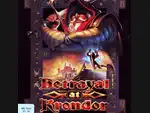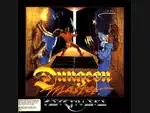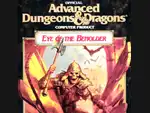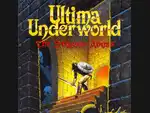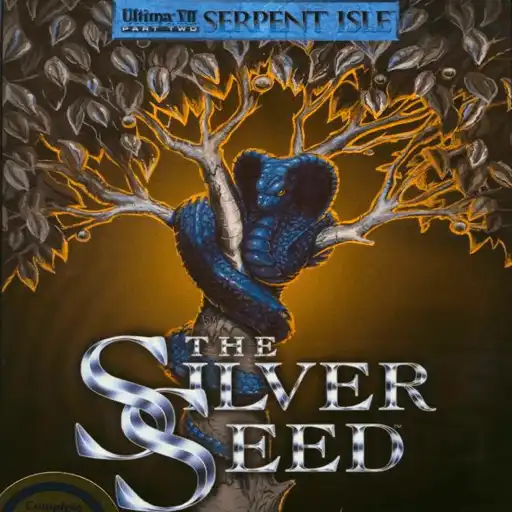
Ultima VII: A Comprehensive Guide to the Classic RPG Experience
"Ultima VII" remains a benchmark in the role-playing game genre, captivating players with its rich narrative and innovative gameplay.
This iconic game, released in 1992, is celebrated for its immersive world and complex characters, setting a standard that many games still aspire to meet today.
As players explore the land of Britannia, they are drawn into a gripping story filled with mystery and adventure, making it a seminal experience for RPG enthusiasts.
The game introduced a real-time combat system and a dialogue tree that allowed for deeper interaction with characters. These features created a game world where choices had meaningful consequences, enhancing the sense of agency.
Players were not just observers but active participants in a living, breathing universe. This level of engagement transformed how stories were told in video games.
Today, "Ultima VII" is remembered not just for its gameplay, but for its lasting impact on game design and storytelling. Its legacy continues to influence modern RPGs, ensuring it remains a significant part of gaming history.
Key Takeaways
- Released in 1992, "Ultima VII" redefined the RPG genre with its immersive gameplay.
- The game features a rich narrative that allows players to make impactful choices.
- Its influence is evident in many modern games, showcasing its lasting legacy.
Development and Release
The development of Ultima VII: The Black Gate marked a significant evolution in the Ultima series. It combined innovative game design with technical achievements, creating a rich experience for players. The game set new standards for storytelling and interactivity in role-playing games.
Original Concepts
The original concepts for Ultima VII began with a drive to improve storytelling and player freedom. Designers aimed to create an immersive world where choices impacted the storyline.
The game's creators wanted players to experience a living, breathing environment. They focused on developing complex characters and engaging narratives that would draw players in. The integration of moral dilemmas and varied quests provided players with a deeper understanding of their role in the game world.
Game Design
The game design of Ultima VII included an open-world structure that allowed players to explore Britannia freely. This design choice encouraged players to interact with the environment in meaningful ways.
The interface was refined from previous titles, making it easier to navigate. Players could manage inventory and engage with NPCs seamlessly.
The game also emphasized exploration and discovery, as players found hidden areas and unique quests. The addition of day-night cycles and weather effects further enhanced the immersive experience, making the game world feel alive.
Technical Achievements
Technically, Ultima VII was groundbreaking for its time. It utilized advanced graphics for the era, including full-screen visuals and colorful animations. This made the game visually appealing on the hardware of the day.
The development team pushed the limits of DOS capabilities to create a rich gaming experience. The game’s engine allowed for detailed NPC interactions and a dynamic world, setting it apart from its predecessors.
According to reports from WePlayDOS, the game was a significant step in the evolution of RPGs, influencing later titles like Seed of Nostalgia Game. Ultima VII’s technical advancements laid a strong foundation for future role-playing games.
Gameplay Overview
In "Ultima VII," players engage with a rich environment and character-driven story. The gameplay features deep character creation, exploration mechanics, and intricate combat systems that define this classic RPG experience.
Character Creation
In "Ultima VII," players assume the role of The Avatar, who can be customized at the start of the game. Character creation focuses on defining skills and attributes, such as strength, intelligence, and combat proficiency.
Players can select different paths, influencing how they approach challenges in the game.
The process is straightforward, allowing players to design their unique Avatar that fits their preferred playstyle. Skills can range from fighting techniques to magical abilities.
As the game progresses, character development continues with experience points that enhance skills, ensuring players feel a sense of growth.
Exploration and Interaction
Exploration plays a vital role in "Ultima VII." The game features an open world filled with various locations to discover. Players can travel through towns, forests, and dungeons, each with unique environments and quests.
Interaction is key; players can talk to numerous NPCs to gather information and receive quests. The detailed dialogue system allows for choices that affect outcomes and character relationships.
Additionally, players can engage with objects in the environment, using them to solve puzzles or uncover hidden secrets.
This level of interaction promotes immersion, making players feel they are part of a vibrant world rather than observers. The freedom to explore at one's own pace adds to the enjoyment and depth of the experience.
Combat Mechanics
Combat in "Ultima VII" combines strategy and real-time action. Players can choose from melee, ranged weapons, or magic, providing various ways to face enemies.
Positioning and timing are crucial for effectiveness in battles.
The game features a diverse array of enemies, each requiring different tactics. Players must adapt their strategies based on the opponent's strengths and weaknesses.
Additionally, character stats influence combat effectiveness, encouraging players to develop their skills thoughtfully.
Plot and Setting
The story in Ultima VII: The Black Gate unfolds in a rich medieval fantasy world filled with deep lore and complex characters. Players, as The Avatar, navigate both a gripping main narrative and the vibrant setting of Britannia, facing challenges that tie into larger themes and conflicts, especially the influence of The Guardian.
Main Narrative
In Ultima VII, players assume the role of The Avatar, who must investigate a series of mysterious murders in the town of Trinsic. This journey leads to the discovery of The Fellowship, a shadowy organization that blends deception with benevolent appearances.
As players progress, they unravel plots that connect various factions and characters. The story is nonlinear, allowing for exploration and interaction that shape the experience.
Choices made by players can affect relationships and outcomes, adding depth to the narrative.
By the end, The Avatar must confront the growing threat of The Guardian, a powerful entity pulling strings from the shadows. This conflict sets the stage for future events leading into Ultima VII Part Two: Serpent Isle.
Britannia and Its Inhabitants
Britannia serves as a complex backdrop with diverse regions and cultures. From the tranquil town of Trinsic to the bustling cities like Britain and Yew, every location offers unique quests and characters.
The land is filled with various races, including humans, elves, and other mystical beings.
The inhabitants each have distinct personalities and stories, enriching the player's experience. NPCs can provide quests, trade items, or share important lore about the realm.
The deeper players dive into conversations, the more they learn about conflicts and alliances within Britannia.
The setting is not just aesthetic; it shapes gameplay. Different environments present unique challenges, from treacherous dungeons to serene forests. The vivid world of Britannia is crucial in immersing players in the story.
The Guardian
The Guardian stands as a significant antagonist in Ultima VII. This mysterious figure manipulates the events to create chaos, aiming to weaken The Avatar and wreak havoc on Britannia.
His influence looms over the narrative, pushing The Avatar into a web of intrigue and danger.
Players first learn about The Guardian's schemes through their encounters with The Fellowship and various townsfolk. His motivations are gradually revealed, making him a compelling and fearsome foe.
The narrative foreshadows his role in the future arc of Ultima VII Part Two: Serpent Isle.
Understanding The Guardian's impact is crucial for players aiming to grasp the larger conflict at play. He embodies the threats that challenge not just The Avatar but also the stability of the entire realm.
Legacy and Impact
"Ultima VII" left a significant mark in the gaming world. Its blend of storytelling, gameplay mechanics, and open world exploration made it a benchmark for many RPGs. This section explores its critical reception, influence on future games, and the vibrant community that has built around it.
Critical Reception
Upon release, "Ultima VII: The Black Gate" was praised for its innovative design and depth. Critics lauded its rich narrative and the freedom it offered players. It received high scores from various gaming magazines, becoming a flagship title for the genre.
The sequel, "Ultima VII Part Two: Serpent Isle," continued this trend. Critics noted its enhancements in character development and new gameplay features.
These games set a gold standard for RPG storytelling and complexity, earning a lasting place in video game history.
Influence on Future Games
"Ultima VII" influenced many future games, shaping how stories are told in RPGs. Its detailed world and interactive elements inspired developers for years to come.
Games like "The Elder Scrolls" series and "Fallout" bear its imprint, utilizing open world mechanics and complex quests.
Moreover, newer titles often cite "Ultima VII" as an inspiration for their systems. It encouraged a focus on player choice and meaningful interactions, pushing the boundaries of what role-playing games could achieve.
Community and Modding
The "Ultima VII" community remains active even decades after its release. Fans have created mods to enhance and expand the game experience.
One notable project is "Seed of Nostalgia," which aims to update the graphics and mechanics while staying true to the original.
Additionally, forums and fan sites keep the discussions alive. Players share tips, strategies, and memories, creating a nostalgia-driven culture.
This communal effort contributes to the game's lasting legacy, ensuring that "Ultima VII" is not just remembered, but actively celebrated.
